
Every year, Australia’s high-risk cyclone areas can expect an average of four cyclones to cross the coast during the November-April season.* Combining strong winds, heavy rain and flying debris, cyclones can be devastating. Preparing your home can not only help reduce damage, it can help protect you from the financial impact and emotional heartbreak of cyclones and major storms.
Here are some practical storm and cyclone preparation measures you can take now.
First thing’s first! Make sure you have Home and Contents Insurance sorted and understand what you’re covered for. If you have a Suncorp Home and Contents Insurance, read your Product Disclosure Statement (PDS) to learn more about your policy cover.
^Not a Suncorp customer? Check out our Home Insurance policies.
If there’s been a cyclone or major storm warning in your area, it’s important to know what to do and how to prepare. Having a step-by-step action plan can help you protect your home and family.
Suncorp customers should also download the Suncorp App. If you need to make a claim after a storm, the Suncorp App makes it simple to upload photos and documents, and track the progress of your claim.
When it comes to the safety of your roof, first discuss with your builder if any work has been done to upgrade it. If not, it may be time for a complete roof replacement. This includes not only the replacement of the external cladding (e.g. tiles, iron, steel, and appropriate flashings) but also these key elements:
Ridge capping is the triangular-shaped tiles or sheeting that cover the joint where two faces of a roof meet.

Roof sarking is a layer of protection placed underneath roof tiles or sheeting to help prevent wind-driven rain and dust from entering the home.
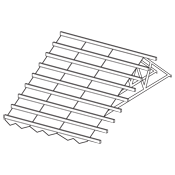
Roof connections in older homes can be strengthened by upgrading or replacing how the framing is held together. New straps or screws can be applied to any of the following:
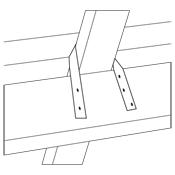
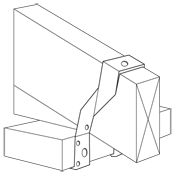
This retrofit system connects a beam on the top of the roof to the foundations, making the roof more secure.

Shutters and guards are designed to protect you from the impact of cyclones and are permanently fitted to the outside of your home. Often made from plywood coverings, guards and shutters can help reduce the likelihood of wind and water from getting inside your home.

A casement window is one that is attached to its frame by one or more vertical side hinges, so that the windows open like doors.

If you do have these, it’s vital to make sure they’ve been upgraded with keyed locks or bolts. These come in multiple designs and are usually fitted to the casement with a bolt that locks into the top or bottom of the frame.
You’ll know if these have been upgraded recently if the material looks newer than the frame or the wall, or if you can see drill holes from old hinges in the frame.
Any roller door manufactured post-2012 automatically meets the necessary bracing requirements. If you have a pre-2012 roller door, it can easily be strengthened by commercially available aftermarket bracing. This includes bracing posts, moulded lugs, reinforced steel rods, struts, brackets and many other types of bracing.
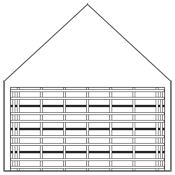
It’s important to note whether your shed has been anchored to a concrete slab or if it’s free standing. If it’s attached to concrete, it’s more likely to be protected against strong winds. Check if either corner posts have been set into the slab, or if join brackets in the bottom corners of the shed are bolted to the slab with anchor bolts (U-bolts, sleeve or dyna bolts).

Once you’ve determined whether it’s free standing or part of the slab, the next step is to figure out your wind rating. Look out for company stickers or branding on the shed, and then check with the council for building approval records that can help you determine the wind rating.
Otherwise, you could purchase commercially available aftermarket cyclone kits to reinforce your shed and help reduce the risk of sustaining damage during high winds. These reinforcements can be in the form of stronger joins or additional support beams to be installed along the roof and walls.
If you’ve gone through the checklist and you think anything needs attention, it’s best to fix any potential issues ASAP.
Read more:
*https://www.abc.net.au/news/2018-10-08/bom-tropical-cyclone-season-outlook/10344462
^Eligibility criteria, terms and conditions apply. Find out more. Insurance is issued by AAI Limited ABN 48 005 297 807 trading as Suncorp Insurance. Read the Product Disclosure Statement before making a decision about this insurance. This advice has been prepared without taking into account your particular objectives, financial situations or needs, so you should consider whether it is appropriate for you before acting on it.
The information is intended to be of a general nature only. Subject to any rights you may have under any law, we do not accept any legal responsibility for any loss or damage, including loss of business or profits or any other indirect loss, incurred as a result of reliance upon it – please make your own enquiries.

AUTHOR:
DATE:
From the simple to the complex, see which upgrades can help better protect your home.

An Australian first for Home Insurance. It’s our commitment to help create more resilient homes. It means that if your home is substantially damaged, we’ll rebuild it stronger with recommended resilience options up to $10,000, in addition to your sum insured, all designed to help withstand severe weather5.
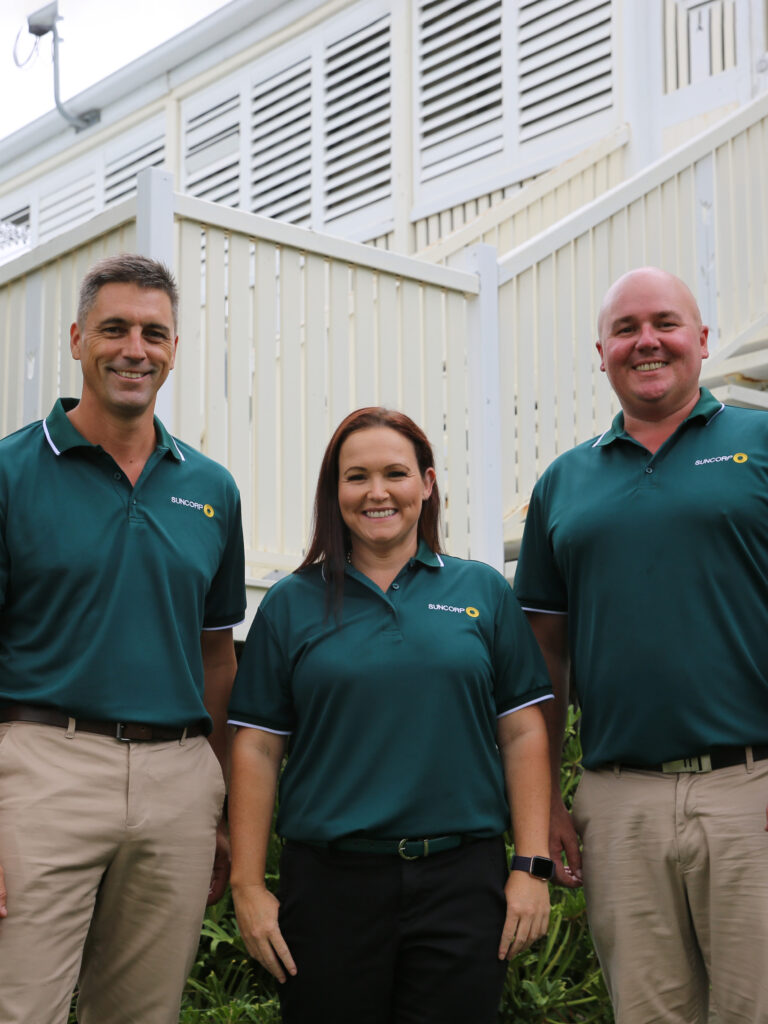
Helping build a more resilient Queensland together.
Insurance is issued by AAI Limited ABN 48 005 297 807 (AAI) trading as Suncorp Insurance. Please read the relevant Product Disclosure Statement before buying any insurance products. The Target Market Determination is also available. The information is intended to be of a general nature only. Subject to any rights you may have under any law, we do not accept any legal responsibility for any loss or damage, including loss of business or profits or any other indirect loss, incurred as a result of reliance upon it – please make your own enquiries.
4. A premium reduction may be available to eligible Suncorp Home or Landlord Insurance customers, with properties above tropic of Capricorn, within 100km from the coast and with certain risk mitigation measures. Eligibility criteria, terms and conditions apply. Find out more.
5. Cover applies to claims with building damage over $50,000 or 10% of sum insured, whichever is highest. Resilience improvements are tiered according to level of cover up to $10,000. Limits, conditions and exclusions apply. Please read the relevant Product Disclosure Statement before you make any decision regarding this product.
COOKIE AND DATA POLICY
We use cookies and other related technologies to improve and tailor your website experience. See our Cookie and Data Policy. This policy provides information about how Suncorp collects and uses data related to your online activity, and how you can choose to remain anonymous.